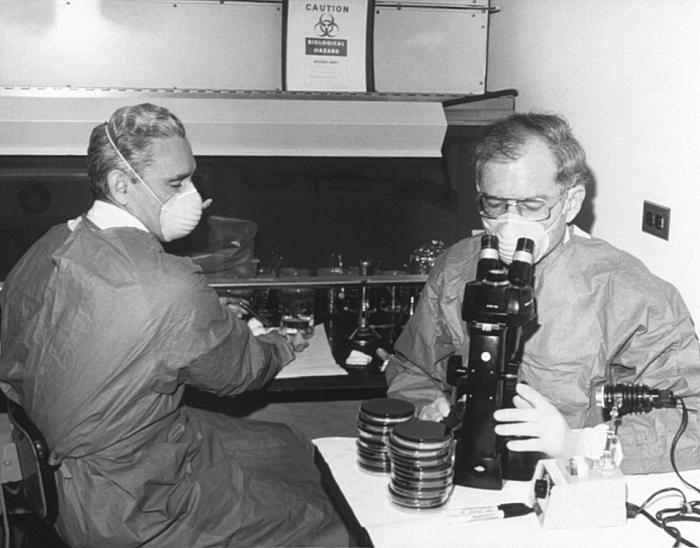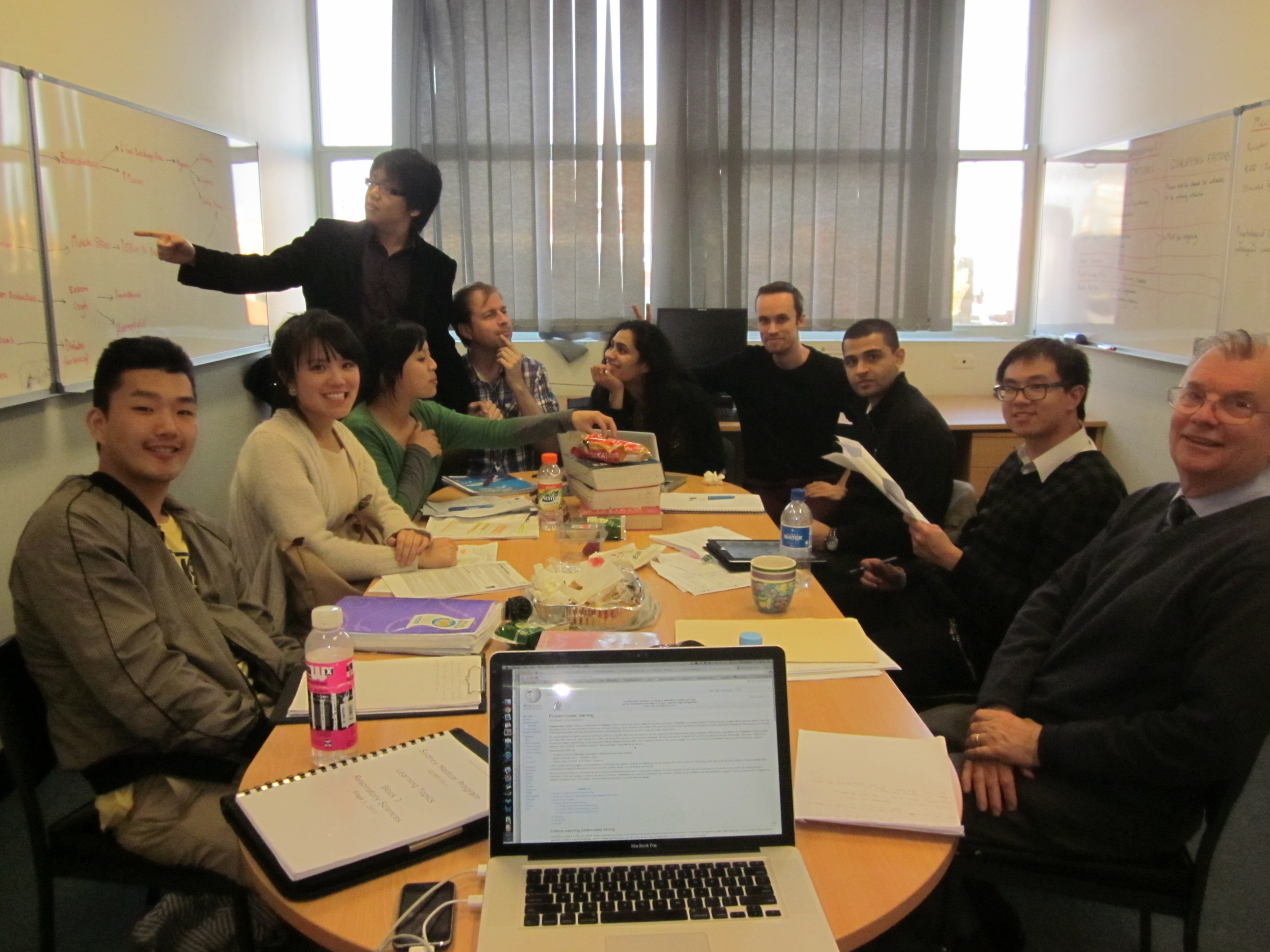|
Integrative Learning
Integrative learning is a learning theory describing a movement toward integrated lessons helping students make connections across curricula. This higher education concept is distinct from the elementary and high school "integrated curriculum" movement. Term and concept Integrative Learning comes in many varieties: connecting skills and knowledge from multiple sources and experiences; applying skills and practices in various settings; utilizing diverse and even contradictory points of view; and, understanding issues and positions contextually." ...making connections within a major, between fields, between curriculum, cocurriculum, or between academic knowledge and practice." Integrated studies involve bringing together traditionally separate subjects so that students can grasp a more authentic understanding. Veronica Boix Mansilla, cofounder of the Interdisciplinary Studies Project at Project Zero, explains "when tudentscan bring together concepts, methods, or languages from t ... [...More Info...] [...Related Items...] OR: [Wikipedia] [Google] [Baidu] |
Learning Theory (education)
Learning theory describes how students receive, process, and retain knowledge during learning. Cognitive, emotional, and environmental influences, as well as prior experience, all play a part in how understanding, or a worldview, is acquired or changed and knowledge and skills retained. Behaviorists look at learning as an aspect of Operant conditioning, conditioning and advocating a system of rewards and targets in education. Educators who embrace Cognitivism (learning theory), cognitive theory believe that the definition of learning as a change in behaviour is too narrow, and study the learner rather than their environment—and in particular the complexities of human memory. Those who advocate constructivism (learning theory), constructivism believe that a learner's ability to learn relies largely on what they already know and understand, and the acquisition of knowledge should be an individually tailored process of construction. Transformative learning theory focuses on the ofte ... [...More Info...] [...Related Items...] OR: [Wikipedia] [Google] [Baidu] |
Interdisciplinarity
Interdisciplinarity or interdisciplinary studies involves the combination of multiple academic disciplines into one activity (e.g., a research project). It draws knowledge from several fields such as sociology, anthropology, psychology, economics, etc. It is related to an ''interdiscipline'' or an ''interdisciplinary field,'' which is an organizational unit that crosses traditional boundaries between Outline of academic disciplines, academic disciplines or School of thought, schools of thought, as new needs and professions emerge. Large engineering teams are usually interdisciplinary, as a power station or mobile phone or other project requires the melding of several specialties. However, the term "interdisciplinary" is sometimes confined to academic settings. The term ''interdisciplinary'' is applied within education and training pedagogies to describe studies that use methods and insights of several established disciplines or traditional fields of study. Interdisciplinarity in ... [...More Info...] [...Related Items...] OR: [Wikipedia] [Google] [Baidu] |
Edutopia
The George Lucas Educational Foundation is a nonprofit publishing company, publisher that documents and publicizes exemplary K-12 education practices and programs, especially through video. It does this primarily through the Edutopia website. Organizational history An organization named "The Media Tree" was founded on 4 August 1983 in Mill Valley, California by John Korty and others. It engaged in public relations for media content creators to the public of Marin County. On 4 September 1990, the organization was renamed to "The George Lucas Educational Foundation". The George Lucas Educational Foundation is widely reported to have been founded in 1991 by George Lucas and Steve Arnold (venture capitalist), Steve Arnold. Lucas originally planned for the foundation to develop technology for schools, but soon determined that schools were not interested or able to use this technology. The foundation was one of the first philanthropies to invest in digital learning technology. The fo ... [...More Info...] [...Related Items...] OR: [Wikipedia] [Google] [Baidu] |
Embryology
Embryology (from Ancient Greek, Greek ἔμβρυον, ''embryon'', "the unborn, embryo"; and -λογία, ''-logy, -logia'') is the branch of animal biology that studies the Prenatal development (biology), prenatal development of gametes (sex cells), fertilization, and development of embryos and fetuses. Additionally, embryology encompasses the study of congenital disorders that occur before birth, known as teratology. Early embryology was proposed by Marcello Malpighi, and known as preformationism, the theory that organisms develop from pre-existing miniature versions of themselves. Aristotle proposed the theory that is now accepted, Epigenesis (biology), epigenesis. Epigenesis (biology), Epigenesis is the idea that organisms develop from seed or egg in a sequence of steps. Modern embryology developed from the work of Karl Ernst von Baer, though accurate observations had been made in Italy by anatomists such as Aldrovandi and Leonardo da Vinci in the Renaissance. Comparative ... [...More Info...] [...Related Items...] OR: [Wikipedia] [Google] [Baidu] |
Physiology
Physiology (; ) is the science, scientific study of function (biology), functions and mechanism (biology), mechanisms in a life, living system. As a branches of science, subdiscipline of biology, physiology focuses on how organisms, organ systems, individual organ (biology), organs, cell (biology), cells, and biomolecules carry out chemistry, chemical and physics, physical functions in a living system. According to the classes of organisms, the field can be divided into clinical physiology, medical physiology, Zoology#Physiology, animal physiology, plant physiology, cell physiology, and comparative physiology. Central to physiological functioning are biophysics, biophysical and biochemical processes, homeostasis, homeostatic control mechanisms, and cell signaling, communication between cells. ''Physiological state'' is the condition of normal function. In contrast, ''pathology, pathological state'' refers to abnormality (behavior), abnormal conditions, including human diseases. ... [...More Info...] [...Related Items...] OR: [Wikipedia] [Google] [Baidu] |
Pathology
Pathology is the study of disease. The word ''pathology'' also refers to the study of disease in general, incorporating a wide range of biology research fields and medical practices. However, when used in the context of modern medical treatment, the term is often used in a narrower fashion to refer to processes and tests that fall within the contemporary medical field of "general pathology", an area that includes a number of distinct but inter-related medical specialties that diagnose disease, mostly through analysis of tissue (biology), tissue and human cell samples. Idiomatically, "a pathology" may also refer to the predicted or actual progression of particular diseases (as in the statement "the many different forms of cancer have diverse pathologies", in which case a more proper choice of word would be "Pathophysiology, pathophysiologies"). The suffix ''pathy'' is sometimes used to indicate a state of disease in cases of both physical ailment (as in cardiomyopathy) and psych ... [...More Info...] [...Related Items...] OR: [Wikipedia] [Google] [Baidu] |
Anatomy
Anatomy () is the branch of morphology concerned with the study of the internal structure of organisms and their parts. Anatomy is a branch of natural science that deals with the structural organization of living things. It is an old science, having its beginnings in prehistoric times. Anatomy is inherently tied to developmental biology, embryology, comparative anatomy, evolutionary biology, and phylogeny, as these are the processes by which anatomy is generated, both over immediate and long-term timescales. Anatomy and physiology, which study the structure and function of organisms and their parts respectively, make a natural pair of related disciplines, and are often studied together. Human anatomy is one of the essential basic sciences that are applied in medicine, and is often studied alongside physiology. Anatomy is a complex and dynamic field that is constantly evolving as discoveries are made. In recent years, there has been a significant increase in the use of ... [...More Info...] [...Related Items...] OR: [Wikipedia] [Google] [Baidu] |
Problem-based Learning
Problem-based learning (PBL) is a teaching method in which students learn about a subject through the experience of solving an open-ended problem found in trigger material. The PBL process does not focus on problem solving with a defined solution, but it allows for the development of other desirable skills and attributes. This includes knowledge acquisition, enhanced group collaboration and communication. The PBL process was developed for medical education and has since been broadened in applications for other programs of learning. The process allows for learners to develop skills used for their future practice. It enhances critical appraisal, literature retrieval and encourages ongoing learning within a team environment. The PBL tutorial process often involves working in small groups of learners. Each student takes on a role within the group that may be formal or informal and the role often alternates. It is focused on the student's reflection and reasoning to construct their ... [...More Info...] [...Related Items...] OR: [Wikipedia] [Google] [Baidu] |
Educational Programs
An educational program is a program written by the institution or ministry of education which determines the learning progress of each subject in all the stages of formal education. See also * Philosophy of education *Curriculum In education, a curriculum (; : curriculums or curricula ) is the totality of student experiences that occur in an educational process. The term often refers specifically to a planned sequence of instruction, or to a view of the student's experi ... References {{education-stub ... [...More Info...] [...Related Items...] OR: [Wikipedia] [Google] [Baidu] |
Educational Psychology
Educational psychology is the branch of psychology concerned with the scientific study of human learning. The study of learning processes, from both cognitive psychology, cognitive and behavioral psychology, behavioral perspectives, allows researchers to understand individual differences in intelligence, cognitive development, Affect (psychology), affect, motivation, self-regulation, and self-concept, as well as their role in learning. The field of educational psychology relies heavily on quantitative methods, including testing and measurement, to enhance educational activities related to instructional design, classroom management, and assessment, which serve to facilitate learning processes in various educational settings across the lifespan.Snowman, Jack (1997). Educational Psychology: What Do We Teach, What Should We Teach?. "Educational Psychology", 9, 151-169 Educational psychology can in part be understood through its relationship with other disciplines. It is informed primar ... [...More Info...] [...Related Items...] OR: [Wikipedia] [Google] [Baidu] |




